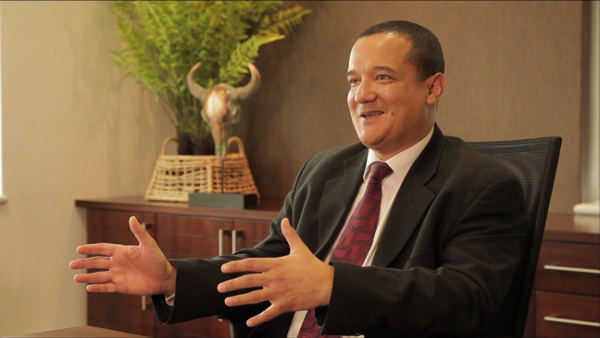
He believes more attention should be given to the real effects of disproportionately high rates and taxes increases by municipalities.
Muller, who heads one of the country’s leading retail property concerns, explains that poor financial discipline at local government level has led to municipalities significantly increasing rates for property owners. However, with a challenging and stagnating economy, it is becoming increasingly difficult for businesses, landlords and communities alike to take on this tax burden.
Research by SAPOA confirms that, over the last decade, rates and taxes have consistently increased at a rate higher than inflation across South Africa’s eight metropolitan municipalities. From 2005 to 2014, the rates and taxes annualised rate of inflation was around 8.2%. Before this, the increase in rates and taxes already exceeded inflation, but the research highlights a noticeable acceleration in the growth rate since 2005.
Muller laments there is little landlords can do to prevent these extreme hikes in rate and taxes
He explains there are two main factors that contribute to hikes in rates and taxes: the value of the property and the rate in the Rand that a specific municipality charges. “While property owners can object to the market valuation of their property, they have no way to object to the rate in the Rand charged by the municipality.”
SAPOA’s research shows that, during the 2013/4 fiscal, of South Africa’s eight metros, six reported increases of over 30% in the value of commercial and industrial properties. Mangaung reported the largest increase with the valuation of its commercial property up a whopping 158.7%. eThekwini reported a municipal valuation increase of 50%. The only municipalities with valuation increases close to inflation were Tshwane at 5.6% and Buffalo City with 4.7%.
Muller explains: “When a municipality levies excessive rates increases, it is driving up the cost of living in its area. As landlords we try to absorb as much of these increases as possible, but inevitably have to pass on some of these costs to tenants. However, there comes a time when it is no longer affordable. Businesses fail. Jobs are lost. Buildings stand vacant.”
“The negative effects on individuals and communities of unsustainable levels of rates and taxes increases are extensive,” counsels Muller. “It is a municipality’s mandate to look after and protect its communities, not just families but businesses too. With unduly high rates and taxes increases, municipalities are failing to meet their mandates.”
On the other hand, Muller points out municipalities that support business by taking a more sustainable approach to rates and tax increasing have plenty to gain.
Importantly, 54.5% of overall rates revenue in the country’s metropolitan municipalities came from commercial and industrial property sectors. Commercial and industrial properties also represented significantly lower levels of arrears compared with other customers.
“By providing incentives and enticements, including a lower rate in the Rand for rates and taxes, municipalities will attract and support successful business. Companies also want to be in cities that work, so the better the level of service from municipalities, the more tolerant businesses are likely to be of rates charged.”
The research by SAPOA revealed the City of Cape Town has the lowest rates with both industrial and commercial property taxed at 1.25 cents in the Rand. Conversely the highest commercial property rates are in the eThekwini Municipality at 3.053 cents in the Rand for industrial property.
“Our major cities are South Africa’s engines of economic growth. A municipality’s approach to rates and taxes can play a key role in attracting and fostering a good business base, with enormous knock-on benefits for employment and the overall socio-economic well-being of an area,” says Muller. “Taking a sustainable approach to rates and taxes increases creates the foundation for growing a city’s rates base and supporting the ability of residents and businesses alike to pay their rates.”
Pareto owns a portfolio of regional and super-regional shopping centres. Besides being the full owner of Cresta Shopping Centre, Southgate Mall and Value Market, and Westgate Regional Shopping Centre, all in Johannesburg; and Menlyn Park Shopping Centre in the East of Pretoria, it also wholly owns The Pavilion in Durban; and Mimosa Mall in Bloemfontein. In Cape Town, Pareto co-owns Tyger Valley Shopping Centre.
Pareto also holds 25% of Sandton City and its surrounding assets including three high-rise office blocks, the Sandton Convention Centre and three hotels: The Sandton Sun, The InterContinental Johannesburg Sandton Towers and Sandton Garden Court.







